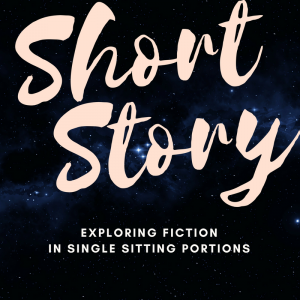Elizabethtown College English Department
writers in action
The Wide World of Short Fiction
Some may find that poetry doesn’t allow enough room to share a story. Others may feel that writing a novel is a bit too long. For those types of people, the E-town course called Writing and Analyzing the Short Story is the perfect fit.
What this Class is All About
During the class, the instructor guides students as they write their own short stories. Over  the semester, they revise their work with fellow classmates. The class allows students to explore their creative side in a unique and interesting way.
the semester, they revise their work with fellow classmates. The class allows students to explore their creative side in a unique and interesting way.
“I think this course helps students understand what it takes to be a writer. It’s a tough business, very competitive yet somewhat subjective,” said Writing Fellow and professor Richard Fellinger. “I put extra emphasis on the writing process–brainstorming, drafting, revising–and I stress that good writers raise the stakes for their characters and write about themes that are deeper than the everyday.”
As a novelist himself, he is experienced in the process.
It Helps Students as Writers
The course focuses on trying to improve a student’s writing ability. They build up narratives over the semester and continuously enhance them.
“This class definitely improved my writing skills,” senior political science and legal studies major Matthew Pysher said. “In the class, we often did peer editing so it was very helpful to get other perspectives on my writing style.”
Within this process of improving a student’s writing, it also helps power their creativity. The course is featured as a Creative Expression fulfillment within the school’s “Core” curriculum. It also fulfills the Guided Writing and Research (GWR) component of the Core program. Because of this dual identity in the Core, and the accessible topic, this course always fills quickly.
“I tell my students that the best professionals in any field understand people–our fears and flaws, hopes and dreams, needs and anxieties, relationships and family histories,” Fellinger said. “I think the Creative Expression core is all about getting students to think harder about forms of art that speak to what it means to be human.”
Overall, a Worthwhile Class
It takes effort in the class to achieve the goal of both becoming a better writer and creative person. But as shown by a variety of students, not only is it possible, it also ends up being a meaningful and enjoyable experience.
“So far my favorite thing to work on has been the creation of our own short story. The topic, theme, setting, characters and more, are all up to us as the writer,” sophomore pre-med biology major Katie Snyder said. “It’s nice to have a class where you’re allowed to just write freely and creatively like this.”
From both my past experience with the class, along with other students, Writing and Analyzing the Short Story is a beneficial English class in a variety of ways. This is a class that all students, not just English majors should consider taking.
Fellinger explained that the class hones skills students use in many different careers. “[T]he best people in any field read. And they are connected to culture. They understand that cultural experiences help them understand how the world works and what it means to be human.”
Author bio:
Christian A.L. Villarosa is a mass communications major and creative writing minor at Elizabethtown College. He has a goal to become a professional sports broadcaster and voice over artist in the future. He is a triple jumper for the Elizabethtown Track and Field team. His other hobbies include photography and creative writing.